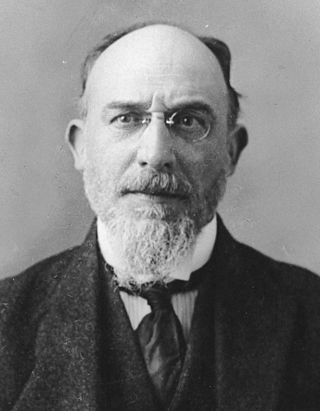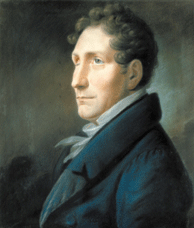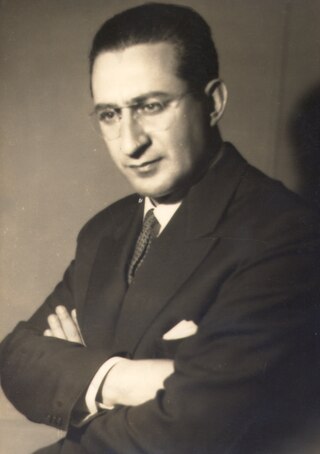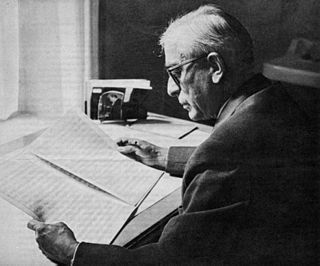
Vincent Ludwig Persichetti was an American composer, teacher, and pianist. An important musical educator and writer, he was known for his integration of various new ideas in musical composition into his own work and teaching, as well as for training many noted composers in composition at the Juilliard School.
Sir Lennox Randal Francis Berkeley CBE was an English composer.

The Sonatine bureaucratique is a 1917 piano composition by Erik Satie. The final entry in his humoristic piano music of the 1910s, it is Satie's only full-scale parody of a single musical work: the Sonatina Op. 36 N° 1 (1797) by Muzio Clementi. In performance it lasts around 4 minutes.
Denis ApIvor was a British composer, best known for his ballet score Blood Wedding. He had a parallel career as a consultant anaesthetist.

Friedrich Daniel Rudolf Kuhlau was a Danish pianist and composer during the late Classical and early Romantic periods. He was a central figure of the Danish Golden Age and is immortalized in Danish cultural history through his music for Elves' Hill, the first true work of Danish National Romanticism and a concealed tribute to the absolute monarchy. To this day it is his version of this melody which is the definitive arrangement.

Willem Frederik Johannes Pijper was a Dutch composer, music critic and music teacher. Pijper is considered to be among the most important Dutch composers of the first half of the 20th century.
Ronald James Stevenson was a Scottish composer, pianist, and writer about music.

Sándor Veress was a Swiss composer of Hungarian origin. He was born in Kolozsvár/Klausenburg, Transylvania, Kingdom of Hungary, Austro-Hungarian Empire, nowadays called Cluj-Napoca, Romania, and died in Bern. The first half of his life was spent in Hungary; the second, from 1949 until his death, in Switzerland, of which he became a citizen in the last months of his life.

Sven Einar Englund was a Finnish composer.
Arnold Atkinson Cooke was a British composer, a pupil of Paul Hindemith. He wrote a considerable amount of chamber music, including five string quartets and many instrumental sonatas, much of which is only now becoming accessible through modern recordings. Cooke also composed two operas, six symphonies and several concertos.

Mozart Camargo Guarnieri was a Brazilian composer.
Donald Oscar Banks was an Australian composer of concert, jazz, and commercial music.

Conrad Arthur Beck was a Swiss composer.

Ingvar Natanael Lidholm was a Swedish composer.
Charles C. Knox was an American composer and music educator. He is particularly noted for his music for brass instruments and chamber music, among his over 100 compositions to date.
Robert Frank Kurka was an American composer, who also taught and conducted his own works.
Erich Urbanner is an Austrian composer and teacher.

Sergiu Natra was an Israeli composer of classical music.

Tigran Yeghiayi Mansurian is a leading Armenian composer of classical music and film scores, People's Artist of the Armenian SSR (1990), and Honored Art Worker of the Armenian SSR (1984). He is the author of orchestral, chamber, choir and vocal works, which have been played across the world. He was nominated for Grammy awards in 2004 and 2017.
Karl Yngve Sköld was a Swedish composer, pianist and organist. As well as writing orchestral, solo and chamber music and giving public concerts, he also worked for the Swedish Film industry.










